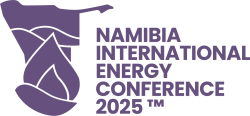 *Russian government, WPC officials formally open high-profile industry event
*Russian government, WPC officials formally open high-profile industry event
*As Nigeria’s Crude export to US drops to 3m barrels
Oscarline Onwuemenyi
17 June 2014, Moscow, Russia – The Nigerian National Petroleum Corporation, NNPC, among many global energy giants, are participating in the 21st World Petroleum Congress (WPC), which started yesterday June 15 and will last till June 19, 2014, in Moscow, Russia.
The World Petroleum Congress is the only international event representing all aspects of the petroleum sector. It was created with the intent to promote the management of the world’s petroleum resources for the benefit of mankind.
Meanwhile, the 21st World Petroleum Congress and its associated World Petroleum Exhibition kicked off in spectacular fashion with delegates and invited guest being treated to wonderful entertainment that truly celebrated Russian culture.
The WPC has been held under the auspices of the World Petroleum Council, a non-profit organization which consists of national committees from over 70 countries worldwide, for over 80 years and is the largest event in global oil and gas sector.
It traditionally gathers CEOs, ministers, senior industry leaders and government representatives, as well as leading experts and scientists from around the world to discuss key industry issues and development prospects.
The ceremony at the Kremlin Moscow was formally opened when Russia’s First Deputy Prime Minister Arkady Dvorkovich welcomed delegates and shared the sentiments of Prime Minister Vladmir Putin on the significance of the global energy industry.
He noted that, “I believe that the event will provide great opportunities for the development of international cooperation and the strengthening of business connections.”
WPC President, Renarto Bertani took the stage to his pride and excitement for the event. The day continued with welcoming speeches from WPC Russian President, Vladmir Evtushenkov and Qatar Energy Minister, Mohammed al-Sada.
In a statement released to the WPC, the Nigerian Minister of Petroleum Resources, Mrs. Diezani Alison-Madueke observed that due to the changing dynamics in the global oil market, the country has little choice but to re-align its national interest and explore new markets for its crude oil and gas stock.
“This comes on the heels of the dwindling demand levels to about eight percent of what it used to be from the United States, which had hitherto been the principal importer of Nigeria’s crude.
“The United States at peak used to import about 37 million barrels per month from Nigeria, as observed in July, 2010, and this plummeted to about three million per month in December, 2013.Nigeria, therefore, is looking towards China and India to cover the vacuum left by America’s decreasing demand,” she explained.
The Minister added that incidentally, the demand from Asia is strong and high enough to encourage Nigeria to increase its production levels in order to fill the gap and meets its domestic demand.
Nigeria’s crude oil export to the US experienced a shortfall of 25.1 million barrels in the first quarter of this year, a significant drop from last year’s figures of 30.7 million barrels.
Export to the US – arguably the largest importer of Nigerian crude, accounting for 40 percent of the country’s total export – dropped dramatically to 5.6 million barrels in Q1 this year, costing the country $2.7 billion with crude price lingering at $110 per barrel.
Oil revenue has been on a decreasing trend in recent times, largely owing to security and economic challenges domestically including oil theft, illegal sales, vandalism and other illegal activities.
There has been daily decrease of 1 million barrels from 2004 to 2007, according to Osam Iyahen, Vice President of Africa Finance Corporation (AFC).
He also added that the Nigeria crude oil market will be at risk when the Libyan and the Iranian suppliers return to the market.
In a bid to counter this decline and further diversify its export portfolio, Wumi Iledare, the president of the International Association for Energy Economics (IAEE), advised the country to explore expanding business relations with China – America’s closest competitor for oil imports – as well develop its downstream and mainstream of the oil sector.
Nigeria’s current daily production stands at 2.5 million barrels, making it the largest African producer and 6th largest globally.



